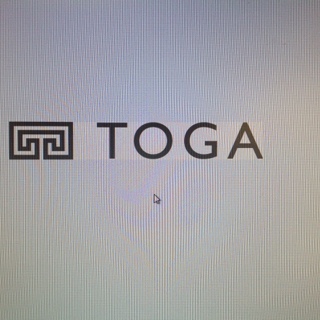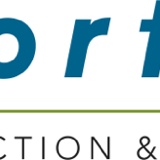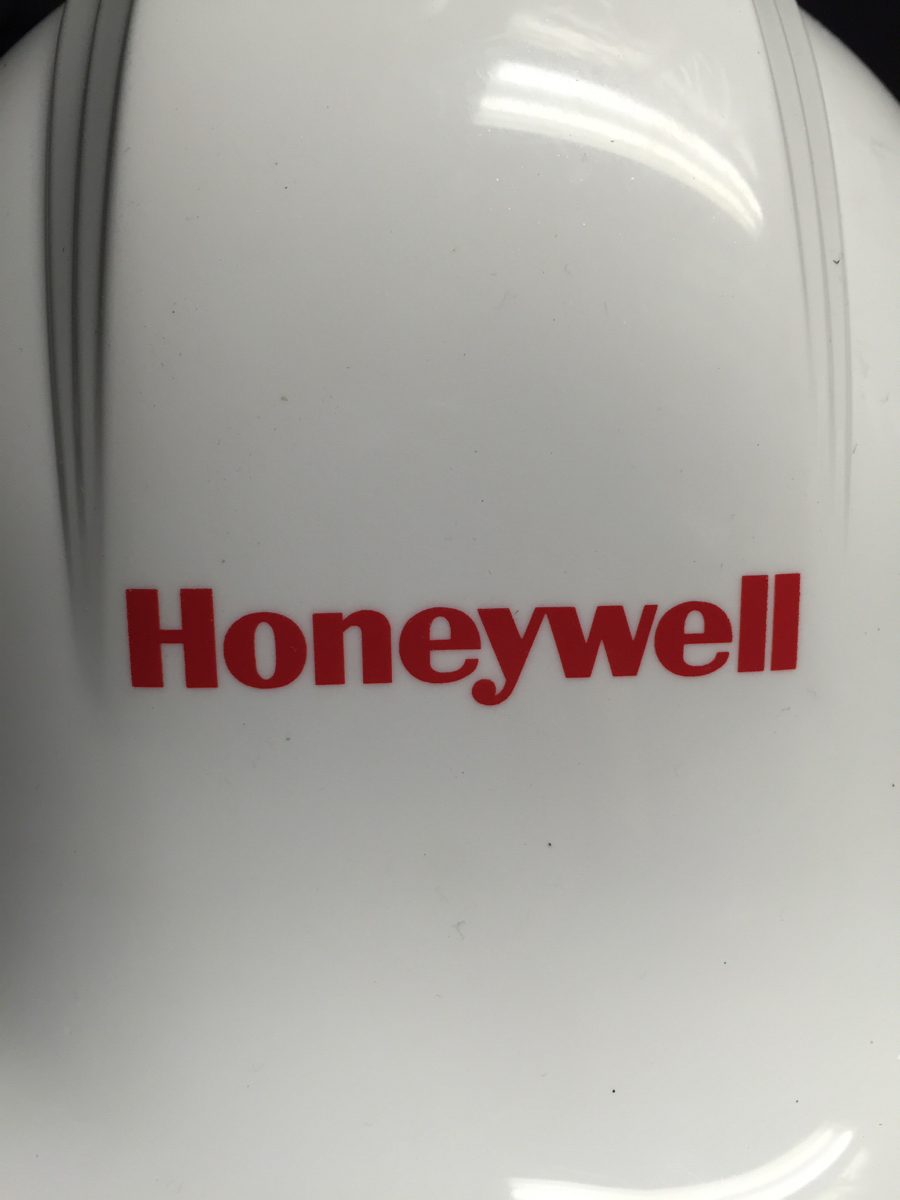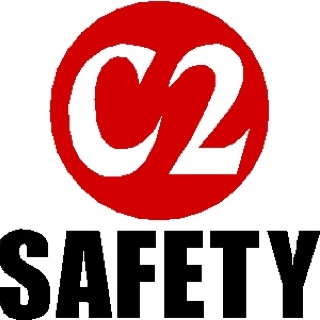Title Page
-
Document Number
-
Audit Title
-
Client Site
-
Conducted on
-
Prepared by
-
Location
Executive Summary
-
General Overview
-
Deep Dive Categories
Site Signage / Notices
-
Is there a Health and Safety Law Poster on display?
-
Is a signed copy of the company health and safety policy displayed? Is it dated in the previous 12 months?
-
Is a valid copy of the Employers Liability Insurance certificate displayed?
-
Is clear signage displayed at the site entrance and at other key locations indicating the mandatory PPE required on site?
-
Where plant and machinery is being used, have moving / reversing vehicle signs been implemented?
-
Are fire and emergency procedures clearly displayed around the site and at all fire points?
-
Is the location of the nearest A&E hospital displayed?
-
Are the names of site first aiders clearly displayed?
-
Is the location of the first aid box / facility clearly indicated?
-
Where applicable has the F10 certificate been displayed, and is the certificate still valid?
-
Are site rules clearly displayed in the site office?
-
Are site induction stickers being utilised on McConnell managed sites?
Site Documentation
-
Has a suitable Construction Phase Plan (CPP) been developed for the project?
-
Is the CPP being developed as the project progresses?
-
Are site inductions being delivered to all site attendees and are records of the inductions being retained?
-
Does the induction include site specific requirements and risks?
-
Are all site attendees signing in and out on a daily basis?
-
Are site managers completing weekly and monthly inspection reports?
-
Are these reports being completed correctly, or do findings of HSE safety inspections contradict site safety inspections?
-
Are Principal Contractor (PC) Risk Assessments and Method Statements (RAMS) available on site?
-
Are the PC RAMS signed by all operatives
-
Are the PC RAMS reviewed and amended as the works progress?
-
Are all significant project risks detailed in the RAMS?
-
Are Subcontractor RAMS Available?
-
Has the McConnell Subcontractor RAMS review form been utilised for all subcontractor RAMS?
-
Have all subcontractor operatives signed their respective RAMS?
-
Are subcontractor RAMS considered to be suitable and sufficient for the works being conducted?
-
Are Permit to Work Systems clearly defined?
Competencies
-
Has the Site Manager retained copies of all operative competencies?
-
Do all operatives, Managers and Site Visitors possess a current CSCS card?
-
Do all workers operating plant or machinery hold valid certification?
-
Have operatives utilising Grinders completed an abrasive wheel training course in the previous three years?
-
Have all operatives who are working at height (WAH) received WAH training in the previous three years?
-
Have all operatives using harnesses received appropriate fall protection equipment training in the previous three years?
-
Have all operatives received Manual Handling training in the previous three years?
-
Have all operatives received asbestos awareness training, and is the training certificate still valid?
-
Where required have operatives received a face fit test for respiratory protective equipment (RPE)?
Welfare
-
Has a site canteen been provided?
-
Does the canteen have sufficient seating with back rests?
-
Has hot and cold running water been provided?
-
Has an adequate supply of hand washing soap and single use hand towels been provided?
-
Has a supply of wholesome drinking water been provided?
-
Is there the capacity to heat / warm food?
-
Is there the capacity to boil water?
-
Has a suitable drying room been provided?
-
Have suitable WC facilities been provided for male and female workers?
Site Access and Egress
-
Are controls in place for staff and visitors?
-
Are controls in place to prevent unauthorised access to site?
-
Has manned security been provided on this site?
-
Has segregation of pedestrian and vehicle movements been established?
-
Are emergency access and egress routes kept clear?
-
Are walkways kept clear of obstructions?
-
Are access and egress routes adequately lit?
Housekeeping
-
Are work areas clean and tidy?
-
Is redundant waste moved to skips immediately?
-
Are walkways free from slip, trip and fall hazards?
-
Are all tools and equipment correctly stored in a safe manner?
Fire
-
Has a fire evacuation plan been developed for the site?
-
Has the fire evacuation plan been communicated to all operatives?
-
Has the fire plan been created giving due consideration to the clients existing fire strategy and evacuation plans?
-
Have suitable means of raising the alarm in the event of fire been provided?
-
Has the fire plan been displayed on site?
-
Has an assembly area been identified?
-
Has suitable fire fighting equipment been provided on site?
-
Has all fire fighting equipment been inspected within the previous 12 months?
-
Is all fire fighting equipment in good condition?
-
Are all flammable materials stored securely away from any sources of ignition?
-
Are all hot works controlled under a permit to work system?
-
Does the permit include adequate controls to prevent fire?
Waste
-
Is waste being segregated on site in line with current regulations?
-
Are all skips clearly identified through appropriate signage?
-
Is a registered waste carrier being used to collect waste?
-
Are waste transfer notes being retained on site?
-
Are special waste consignment notes being retained on site?
-
Where possible is recycling taking place?
-
Are skips located away from buildings and perimeter fencing to discourage vandalism and arson?
Personal Protective Equipment
-
Is the need for specific PPE detailed in the CPP, RAMS and Site Induction?
-
Are all operatives wearing McConnell branded PPE?
-
Where dust, mist, gasses or fibres are being produced, are operatives utilising the correct RPE, and have they been appropriately trained?
-
Are operatives using RPE clean shaven?
-
Is the correct mechanical strength safety eyewear being utilised for site activities?
-
Are the correct cut resistance gloves being used in line with the RAMS?
-
Are all items of PPE being used for their intended purpose?
-
Are all items of PPE clean, in good condition and considered suitable for use?
CoSHH
-
Is a site CoSHH register available to view?
-
Are CoSHH assessments for each substance available on site?
-
Are Material Safety Data Sheets for each substance available on site?
-
Has the appropriate PPE been issued in line with the COSHH assessment?
-
Is PPE being used correctly in line with the COSHH assessment.
-
Is CoSHH on site being correctly stored to prevent spills and contamination?
-
Are spill kits available on site?
-
Has a spill procedure been developed and do all staff understand the contents of the procedure?
Traffic Management
-
Has a site traffic management plan been produced?
-
Are pedestrians / vehicles being effectively segregated?
-
Have laydown areas for deliveries been identified?
Work Equipment (Hand Held Tools)
-
Are all tools battery powered or 110v?
-
Have all tools been PAT tested in the previous three months in line with company procedures? and are records available to view?
-
Are all tools in good condition with no obvious damage?
-
Are all tools being used for their intended purpose?
-
Are protective guards fitted to tools where required?
-
Do all operatives hold the correct competencies to operate the equipment?
Cartridge Operated Tools
-
Have the operators received suitable training on the use of the equipment, including actions on how to deal with a misfire?
-
Are all operatives using the equipment over the age of 18 years old?
-
Have steps been taken to ensure that the operator is not colour blind? (cartridges are colour coded to determine strength)
-
Is the operator wearing suitable eye protection, hearing protection and head protection?
-
Is the area where the machine is being used controlled to prevent accidents and incidents?
-
Has the equipment been inspected in line with legal requirements and manufacturers instructions?
-
When not in use is the equipment stored securely by a competent supervisor?
Electrics
-
Are temporary installation certificates available?
-
Where isolations are in place, has a lock out tag out kit been used to ensure accidental re-energising of the system does not occur?
-
Has the isolation been carried out by a competent person?
-
Has an isolation certificate been issued to Hugh L.S. McConnell Ltd.
-
Have all cables been identified as live, historic or isolated and have appropriate controls been implemented to prevent damage?
-
Are extension leads being used correctly and as designed?
Work at Height (WAH)
-
Have all WAH activities been planned in line with the hierarchy of control for work at height?
-
Has safe access and egress been provided for WAH activities?
-
Where roof work is being conducted, has the condition of the roof been established and documented prior to work commencing, i.e. is the roof fragile?
-
Have all operatives received WAH training?
-
Have all significant WAH risks and suitable control measures been detailed in the RAMS?
-
Have all operatives signed the RAMS, and do they understand the risks?
-
Are weather conditions and wind speeds being monitored?
-
Are the site management team aware of the wind speeds at which all WAH must stop in line with the Beaufort Scale as detailed in HSG33 Health and Safety in Roof Work?
-
Where EASI-DECK boards are used, have they been inspected in the previous 12 months and are tags visible to indicate suitability to users?
-
Where Edge protection is fitted, does the system meet the minimum requirements of being double railed with the top rail being at a minimum height of 950mm with gaps between rails no greater than 470mm?
-
Where harnesses are being used, have all users received appropriate fall protection equipment training and are records available on site?
-
Have harnesses been inspected by a competent person in the previous 6 months and are records available on site?
-
Have daily pre-use checks of harnesses been carried out by the user? (Ensure these checks are being completed correctly)
-
Are working platforms free from slip and trip hazards?
-
Where pre-existing fixed safety systems (man-safe lines) are being used, has the inspection condition of the system been verified and documented by a competent person?
-
Are all tools secured so as not to fall from height?
-
Where materials are stored at height, have engineering calculations been produced by a competent engineers to establish the suitability of such storage and to determine the tie down methods required.
-
Are daily site manager checks of any "hold down" strapping being conducted and recorded to ensure compliance with documented engineering solutions?
-
Do ladders used on site meet the minimum standard of EN131?
-
Where ladders are being used, are they in good condition with no obvious damage or excessive contamination?
-
Where ladders are being used are they set at the correct angle of 75 degrees or 1 in 4?
-
Are all ladders tagged and inspected at 3 month intervals in line with company procedures?
-
Have emergency recovery procedures been documented for WAH activities and is all equipment required to implement a recovery available on site?
-
Are staff aware of the documented recovery procedures and do staff hold the required competencies to successfully effect the documented recovery method?
-
Are drills conducted to verify the suitability of recovery procedures?
Scaffolding
-
Are design drawings available for scaffold installations?
-
Has a handover certificate been provided to the site manager?
-
Has safe access and egress been provided?
-
Are ladders connected with a square lash or ladder bracket and do the extend 1 meter above the platform?
-
Where ladder are present are ladder gates fitted?
-
Are suitable guard rails provided?
-
Have toe boards been fitted?
-
Has debris netting, brick guards or fans been fitted to protect the public and others working on site?
-
Are platforms clear of debris and trip hazards?
-
Are scaffold boards in good condition with no cracks or evidence of damage?
-
Are there excessive gaps in the working platform?
-
Is a scaff tag present at every access and egress point?
-
Has the installation been inspected by a competent person at intervals no greater that seven days or after any event which may compromise the integrity of the structure?
-
Are inspection certificates present in the site office?
-
Where Gin Wheels are fitted, has a certificate of inspection been issued in line with the Lifting Operations and Lifting Equipment Regulations 1998? The wheel is to be inspected annually and any ropes are to be inspected every 6 months.
-
Are operatives competent to use Gin Wheels as outlined in SG9:15?
-
Has the gin wheel been correctly fitted with a load bearing coupler fitted at either side and the wheel fitted no further than 750mm from the outer leg?
Confined Spaces
-
Has a specific confined space risk assessment been conducted?
-
Have the risks been assessed by a competent person?
-
Have any required isolations been conducted by a competent person using a lock out tag out system?
-
Is the work being carried out under a permit to work system?
-
Are all operatives appropriately trained and competent to conduct the work?
-
Is atmospheric monitoring taking place?
-
Has a rescue plan been developed and communicated to all parties involved?
-
Is the work being supervised by a competent person located outside the confined space?
Noise
-
Is there a noise assessment on site
-
Has noise been detailed as a risk in the CPP and RAMS?
-
Have suitable controls been implemented to reduce or eliminate the production of noise?
-
Are operatives utilising appropriate PPE as detailed in the RAMS
Vibration (HAVS)
-
Has a vibration assessment been produced for the site?
-
Does the assessment include consideration of at risk individuals and does it consider alternative methods of work?
-
Are colour coded vibration tags fitted to all tools detailing the Exposure Action Value (EAV) times and the Exposure Limit Value (ELV) times?
-
Have staff been provided with information, training and instruction relating to HAVs?
-
Are all vibrating tools properly maintained?
-
Have suitable controls been established where the Exposure Action Value (EAV) has been reached or exceeded?
-
Are trigger times being recorded?
-
Where required has health monitoring been provided in line with the Control of Vibration at work Regulations 2005?
Construction Dust (Silica)
-
Is construction dust detailed as a risk in the RAMS?
-
Are methods such as damping down and using local exhaust ventilation being used to reduce the production of dust at source?
-
Have operatives received information on the hazards associated with construction dust?
-
Are operatives who are at risk provided with appropriate RPE?
Asbestos
-
Has an asbestos survey been carried out in line with HSG264
-
Has a detailed risk assessment and method statement been conducted based on the findings of the survey?
-
Are emergency procedures in place for inadvertent exposure?
-
Has the assessment been communicated to all relevant parties
-
Is the presence of asbestos detailed in the site induction?
-
Has the HSE been notified prior to work being undertaken (14 day notice)
-
Is the removal company licenced and are competencies for all operatives located on site?
-
For licenced work, are medical certificates for operatives available?
-
Is air monitoring being conducted throughout the work, if so are records available?
-
Have certificates of re-occupancy been issued?
-
Is asbestos being disposed of by a licenced contractor and are special waste consignment notes available?
-
For non-licenced work, do all operatives have Cat B asbestos training and an in date face fit test certificate?
-
For non licenced work are suitable decontamination methods being adhered to?
Safety Netting
-
Where fall protection netting has been fitted, has a handover certificate been provided?
-
Are there any excessive gaps in the netting?
-
Are there any obstruction underneath the netting that could impact a falling operative under deflection?
-
Have the nets been inspected at periods of no greater than 7 days by a competent person?
-
Is the site manager conducting daily netting checks prior to work commencing, if so are checks being recorded?
-
Where operatives are working below netting, has debris netting also been fitted?
First Aid
-
Has a first aid assessment been produced for this project?
-
Have an adequate amount of first aiders been provided on the project, allowing for sickness and absence?
-
Are the names of first aiders provided in the Induction, RAMS and on site signage?
-
Is an accident book maintained on site?
-
Is an appropriate first aid box available on site?
-
Is clear signage provided detailing the location of the first aid box?
-
Is the first aid kit checked on a weekly basis and are records retained?
-
Are all contents of the first aid box in date?
Plant
-
Are all Mobile Elevated Work Platforms (MEWPs) and Scissor Lifts inspected and maintained in line with the Lifting operations and lifting equipment Regulations 1998?
-
Do all operators hold the relevant competencies to operate MEWPS, Scissor lifts and Telehandlers?
-
Are sanctuary zones fitted to MEWPS when operating internally or where an overhead obstruction exists?
-
Are MEWPs, Scissor Lifts and Tele handlers immobilised when not in use? For example, keys removed.
-
Are daily check sheets in place and being completed for MEWPS and scissor lifts?
-
Are staff utilising MEWPS wearing a work restraint harness to further limit the likelihood of a fall?
-
Are Tele handlers being used in line with manufacturers instructions?
-
Is clear in date certification available to show that Tele handlers are being inspected in line with current regulations?
-
Where equipment and passenger lifts are being used, have operatives been trained in their use and are they inspected and maintained in line with LOLER 1998?
-
Are hoists / lifts being used correctly as designed?
-
Where hoists are connected to a scaffold, does the design allow for this?
-
Are the safe working loads clearly displayed on all equipment?
Lifting Operations
-
Is a lifting plan available on site?
-
Has an appointed person been detailed for the lift?
-
Has a lift supervisor been appointed in the lifting plan?
-
Do all operatives have the required competencies to conduct lifting operations?
-
Has the lifting equipment been tested and regularly inspected in line with current regulations?
-
Are safe working loads clearly marked on all lifting and ancillary equipment?
-
Has a survey been conducted prior to lifting operations commencing to establish hazards such as soft ground, overhead obstructions, electrical lines, voids and the proximity of existing structures? this should be conducted by the appointed person and must be detailed in the lifting plan?
-
Do the operatives detailed in the lifting plan match those in attendance on site?
-
Have all operatives signed the lifting plan?
Manual Handling
-
Has a manual handling assessment been completed for the project?
-
Are manual handling aids and processes being used to eliminate or reduce the need for manual handling?
-
Have all operatives received manual handling training?
Security
-
Is the site securely fenced off to prohibit unauthorised access
-
Is the perimeter fence secure and undamaged?
-
Are all gates secure?
-
Is out of hours security provided?
Compressed Gasses (LPG, Acetylene)
-
Are compressed gasses located away from sources of ignition and flammable liquids?
-
Are gasses correctly stored externally in a purpose made cage?
-
Are gasses stored and secured in an upright position away from voids and cellars?
-
Are Gasses segregated by type?
Temporary Works
-
Is there a temporary works register on site?
-
Has a temporary works coordinator been identified in writing?
-
Have the temporary works been designed in line with BS5975:2008?
-
Have the temporary works been inspected on completion and are handover certificates available?
Excavations
-
Have all excavation activities been included in the RAMS?
-
Has buried service data been reviewed and has a cable avoidance tool been utilised to identify buried services?
-
Have all identified services been clearly marked with line marker spray?
-
Has a permit to dig been issued?
-
Are hand digging techniques being utilised within 2 meters of existing services?
Site Management
-
Is the Site Manager completing accurate weekly and Monthly Site Managers inspections?
-
Is the site manager aware of the escalation procedure when an injury, incident or near miss occurs on site?
-
Does the Site Manager hold an Site Managers Safety Training Scheme (SMSTS) certificate?
-
Does the site manager communicate effectively and resolve issues in a timely manner?
-
Has the site manager been proactive in reducing the number of incidents on site?
-
Comment on site issues, accidents and incidents.
Other Issues Identified
-
Detail any additional observations.
Areas of Best Practice
-
Describe what is being done well.
I can confirm that the contents of the audit report have been explained to me!
-
Site Manager.
-
HSE Manager.
All actions must be closed by:
-
Select date












